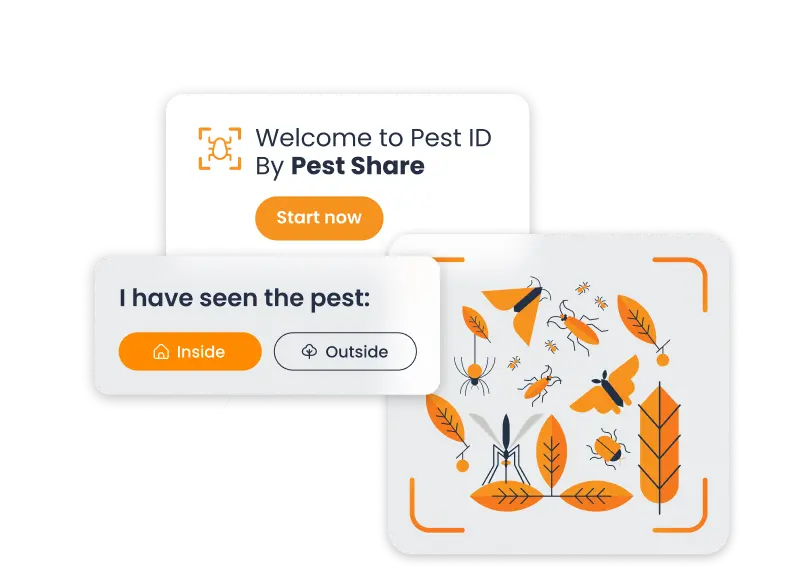The buzz of a mosquito can be more than just a nuisance; it’s a clear sign of a problem that could potentially disrupt the comfort and safety of tenants, affecting the appeal and value of your property. Imagine the frustration of dealing with recurring mosquito infestations, despite efforts to keep them at bay. The effectiveness of mosquito control measures directly impacts tenant satisfaction and your bottom line as a property manager. Ensuring every potential and current tenant enjoys a pest-free living environment isn’t just about convenience; it’s about creating a sanctuary where they feel safe and protected. This guide dives deep into the world of mosquito control, providing essential knowledge on treatment durability, application frequency, and safety measures to enhance your property management strategies.
Understanding Mosquito Treatment Options
Mosquito control encompasses a variety of methods, each with its strengths and considerations. Chemical treatments, often in the form of sprays, are widely used for their immediate and potent effect on mosquito populations. Biological controls, such as the introduction of natural predators or bacterial agents, offer a more environmentally friendly approach, targeting mosquitoes without harming non-target species. Physical methods, including the removal of standing water and the use of barriers or screens, prevent mosquitoes from breeding and entering living spaces. The choice of mosquito control method depends on several factors, including the size of the property, the severity of the infestation, environmental concerns, and the preferences of the residents. A balanced approach that combines these methods can often yield the best results, offering both immediate relief and long-term control.

Fast Fixes. Happy Residents.
How Long Does Mosquito Treatment Last?
The duration of effectiveness for mosquito treatments varies widely, influenced by factors such as the type of treatment, environmental conditions, and mosquito species. Chemical sprays can offer quick knockdown of mosquito populations, but their effectiveness can diminish over time, usually lasting a few weeks to a month before reapplication is needed. The longevity of biological controls can vary, with some solutions providing longer-term management of mosquito larvae in breeding sites. Weather conditions, particularly rain, can significantly reduce the durability of treatments by washing away chemical agents or disrupting biological controls. Understanding these variables is crucial for planning an effective mosquito control strategy that minimises the need for frequent reapplications while maintaining a comfortable environment for tenants.
How Often to Spray for Mosquitoes

Determining the optimal frequency for mosquito treatments requires a careful assessment of your property’s specific conditions. Generally, during peak mosquito season, treatments may need to be applied more frequently, possibly every month or even more often in areas with high mosquito activity. For properties near water bodies or with abundant vegetation, a more aggressive treatment schedule may be necessary to keep mosquito populations under control. Conversely, during cooler months or in less prone areas, treatments can be spaced further apart. Tailoring the treatment schedule to your property’s unique environment and the changing seasons ensures effective mosquito control while optimising resource use. Regular monitoring of mosquito activity and resident feedback can help adjust this schedule as needed, ensuring the best protection for your tenants and property.
How Long Does Mosquito Spray Last?
Understanding the longevity of mosquito sprays is key to managing expectations and scheduling treatments. Chemical sprays, the most common method used for immediate impact, typically offer a protection period ranging from a few weeks to about a month, depending on the product’s formulation and the environment where it’s applied. Factors such as rainfall, irrigation, and landscaping practices can influence how long the treatment remains effective. For example, heavy rains shortly after application can wash away the chemicals, significantly reducing the treatment’s lifespan. On the other hand, natural mosquito repellents, though safer for the environment and potentially beneficial for properties with a focus on green living, often have a shorter duration of effectiveness and may require more frequent applications. This variance highlights the importance of selecting the right type of treatment for your property’s specific needs and environmental conditions.
Pre-Treatment Considerations
Preparing your property for mosquito treatment is just as important as the treatment itself. A well-prepared property ensures that the mosquito control efforts are maximised for longer-lasting protection. This preparation involves managing the landscape to eliminate standing water where mosquitoes breed. Regular maintenance tasks, such as clearing gutters, repairing leaky faucets, and ensuring proper drainage, can significantly reduce mosquito populations by removing their breeding sites. Additionally, informing residents about the upcoming treatment and providing guidelines on how they can prepare their personal spaces can enhance the effectiveness of the treatment. Safety measures should also be communicated, such as covering outdoor food areas and pet dishes, to ensure that the chemical treatment does not adversely affect non-targeted areas or species. By taking these steps, property managers can create an environment that is less hospitable to mosquitoes and more conducive to the effectiveness of the treatments applied.
How Long After Mosquito Spray Can You Go Outside
After applying mosquito spray, a common concern is when it’s safe for residents to return to the treated outdoor areas. The wait time can vary based on the type of spray used and environmental conditions. For most chemical treatments, residents should ideally stay indoors or away from treated areas for about 30 minutes to 2 hours, allowing the chemicals to settle and dry. This duration ensures that the risk of direct contact with the wet chemicals, which can cause skin or respiratory irritation, is minimised. For natural or organic treatments, the wait time might be shorter, but it’s always best to err on the side of caution and follow the specific guidelines provided by the pest control service. Communicating these details to residents before treatment helps manage their expectations and ensures their cooperation and safety, fostering a sense of well-being and trust in the property management’s commitment to their comfort.
Post-Treatment Practices
Maintaining the effectiveness of mosquito treatments requires diligent post-treatment practices. These practices include ongoing landscape management to remove any standing water and debris where mosquitoes can breed. Encouraging residents to report areas of concern, such as pooled water after rainstorms or leaking outdoor faucets, can greatly assist in these efforts. Additionally, scheduling follow-up treatments before the effectiveness of the previous application wanes is crucial to providing continuous protection. Educating residents on how they can contribute to mosquito control, such as using screen doors, applying personal repellents when necessary, and avoiding outdoor activities during peak mosquito activity times, can also help extend the duration of the treatment’s effectiveness. Regular communication with residents about the steps being taken for mosquito control and how they can play a part reinforces the community’s collaborative effort in maintaining a comfortable and safe living environment.
Monitoring and Adjusting Mosquito Control Strategies
Effective mosquito control requires more than just initial treatment; it calls for ongoing monitoring and adjustments to ensure long-term success. Establishing a monitoring system helps property managers understand the efficacy of the treatments and identify areas for improvement. This might involve regular inspections for signs of mosquito activity or feedback solicitation from residents regarding their comfort levels and any mosquito sightings. Based on these insights, adjustments to the mosquito control strategy may be necessary, such as altering the frequency of treatments, trying different control methods, or intensifying efforts in specific areas of the property. For instance, if a particular area continues to experience higher mosquito activity, targeted treatments may be required to address the issue. Additionally, staying informed about advancements in mosquito control technologies and methods can offer new opportunities to enhance your property’s pest management approach, ensuring that your strategies remain effective and responsive to the needs of your community.
The Role of Pest Control Amenities in Property Management
Offering pest control as a highlighted amenity in property management showcases a commitment to resident well-being and property value preservation. Integrating services like Pest Share into your property management toolbox elevates the resident experience by providing peace of mind and comfort. Pest Share’s innovative approach to pest control, which includes advanced Pest ID software and seamless coordination with vetted service providers, ensures that residents enjoy prompt and effective pest solutions without the hassle. This not only enhances the appeal of your property but also positions it as a desirable place to live, helping to attract and retain tenants. Additionally, adopting pest control technologies signals to investors and property owners that their properties are managed proactively and with an eye toward the future, safeguarding their investments against the damages and costs associated with pest infestations.
Conclusion
Mosquito control is a crucial aspect of property management that cannot be overlooked. By understanding the nuances of treatment durability, ensuring thorough pre- and post-treatment practices, and adjusting strategies based on monitoring feedback, property managers can provide a safer, more comfortable living environment for residents. The integration of pest control amenities, like those offered by Pest Share, further enhances the resident experience, contributing to higher satisfaction rates and increased property appeal. Remember, effective mosquito control is an ongoing commitment that pays dividends in tenant happiness and property value. Ready to take your property management to the next level? Consider making mosquito control a top amenity and see the difference it can make. Let’s make your property the sanctuary it should be, free from the buzz and bite of unwanted guests.





